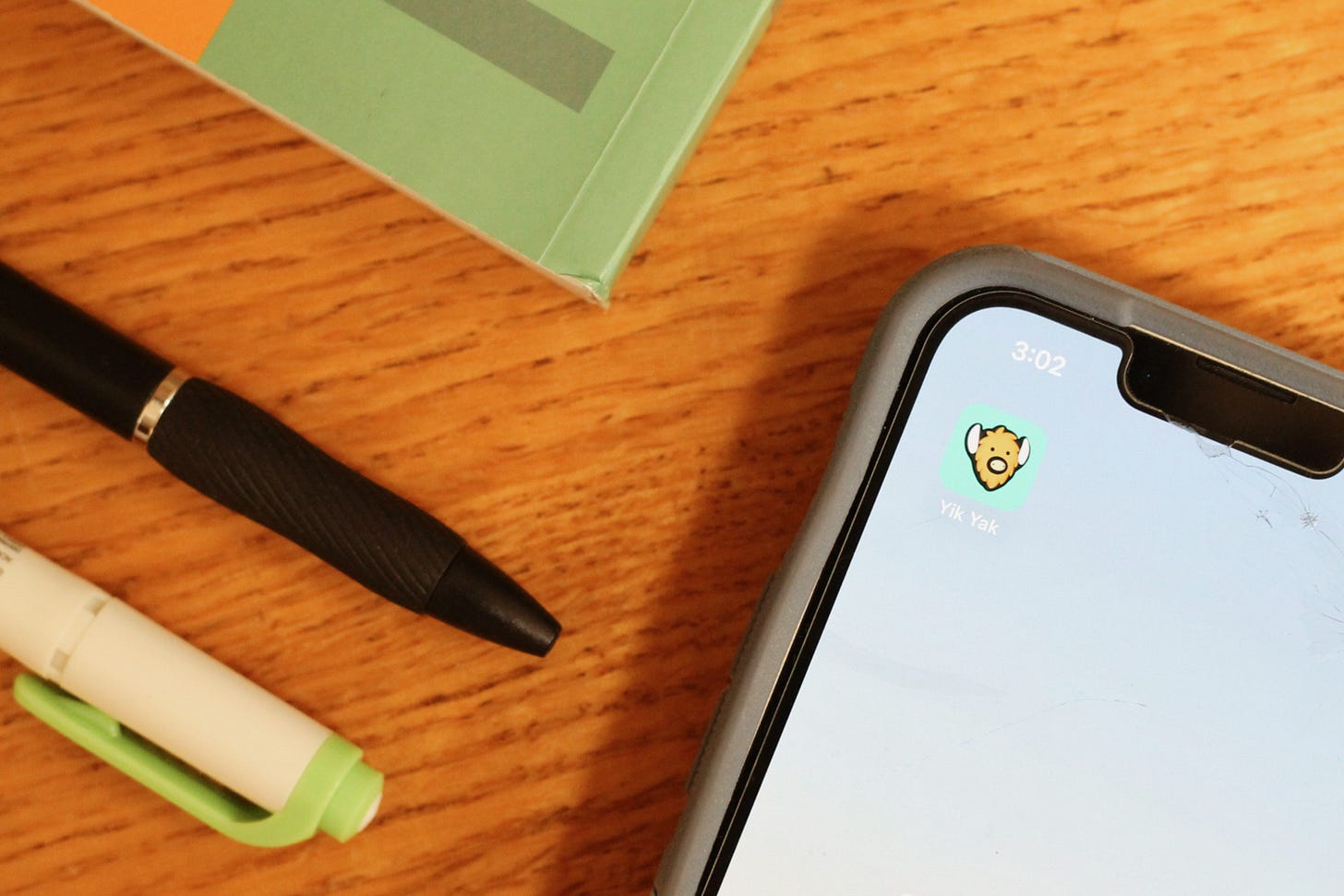EDITORIAL | Yik Yak: Anonymous Chaos or Campus Free Speech?
From the Blue & Gold Editorial Board. Is Yik Yak a digital town square or a mouthpiece for anonymous cruelty?
EDITOR’S NOTE: This column, the first opinion-editorial on the Blue & Gold Media Substack, is not a report from the B&G newsroom; it comes from the desk of the Blue & Gold Editorial Board. The Board seeks to provide thoughtful, independent commentary on issues that affect Mississippi College’s campus.
Yik Yak is an anonymous social media platform that has faced serious criticism for promoting cyberbullying, harassment, and misinformation. While the app claims that it “encourages open and local discussion,” the user’s lack of accountability can lead to an unhealthy campus culture, stretching the boundaries between free speech and unchecked toxicity. Is Yik Yak a digital town square or a mouthpiece for anonymous cruelty?
Given the issues, we believe the platform does more harm than good.
Campus Conversation, Unfiltered
One main appeal to using Yik Yak is a sense of anonymity. Users are free to communicate without having their words tied to their names. While Yik Yak uses this as a key point of its marketing, anonymity creates a negative effect on campus culture. Without user identity, individuals could potentially feel bold enough to post offensive and false information, making the platform a breeding ground for negativity. Schools and communities continue to raise concerns about the app’s harmful effects and impact on people’s online and offline lives.
The social backlash of actual physical bullying in public would be drastic to students in a professional academic environment. But Yik Yak takes out the physical and public aspects that tend to come with speech. This removal of potential backlash creates an environment that incentivizes users to say things they would never say out loud or on mainstream social media.
Some members of our Blue & Gold Media editorial staff used Yik Yak during their early years at MC only to find nothing academic or educational about it. We found instead a platform for people to say the most outrageous statements. The app was somewhat useful for entertainment purposes and to learn the latest campus gossip but never viewed as a reliable news source or an educational tool. Consequently, we believe nothing on the app should be taken seriously.
Universities Respond
Since the revival of Yik Yak on Mississippi College’s campus a few years ago, some universities have responded to Yik Yak use by students by actively monitoring discussions on the app.
Recently, MC administrators acted on a bomb threat discovered on the app. On February 24, students received an email from Jenny Tate, Vice President of Marketing Communications, notifying them of an anonymous online social media post about a bomb threat to the Clinton campus.
Authorities, including MC Campus Safety officials and the Clinton Police Department, responded to the threat by tracing the post back to an MC student. The investigation led to the student’s arrest and campus officials confirmed no threat to students, faculty, or staff. MC officials say that such threats are treated seriously and that they are committed to ensuring the safety of MC students and employees.
A Call for Responsibility & Accountability
Regardless of whether students perceive Yik Yak as a positive or negative platform, they need to be more social media savvy. Students must learn to utilize social media in a way that could be beneficial as opposed to harmful, not in ways that could potentially cause distress.
Social media use requires users to be curious, but also mindful and wise.


